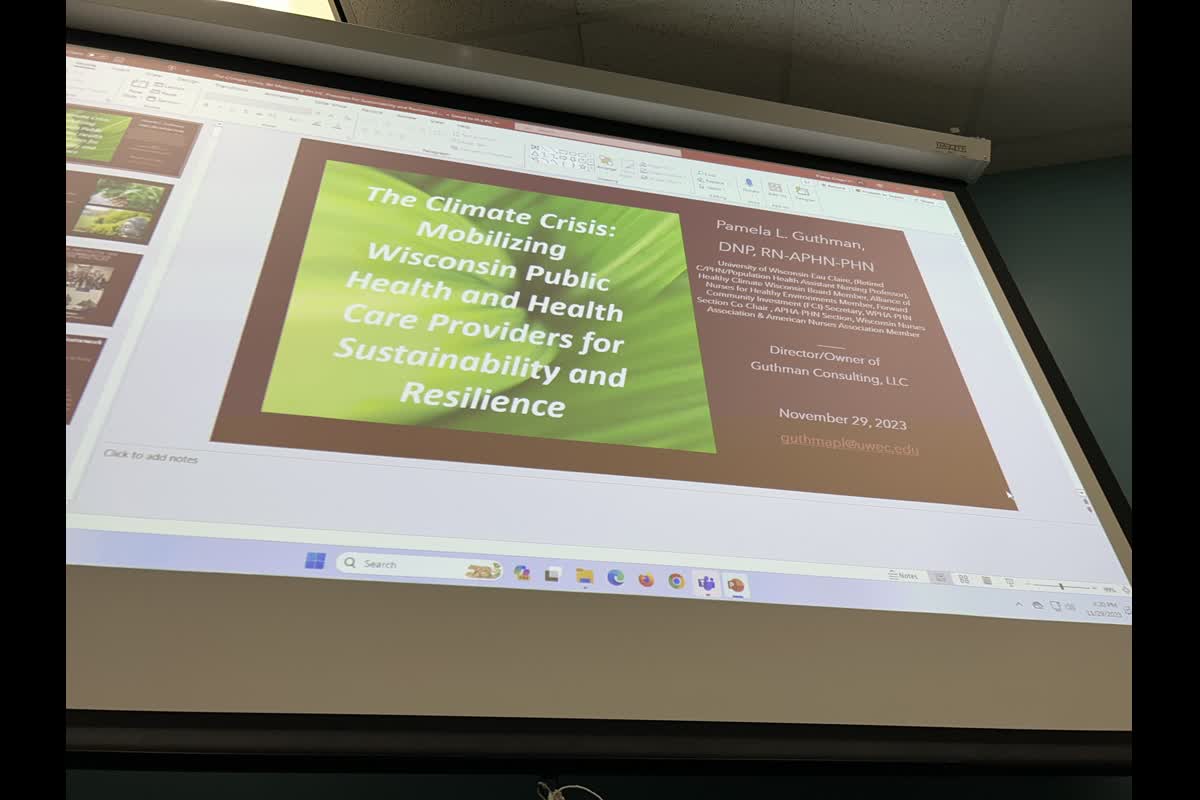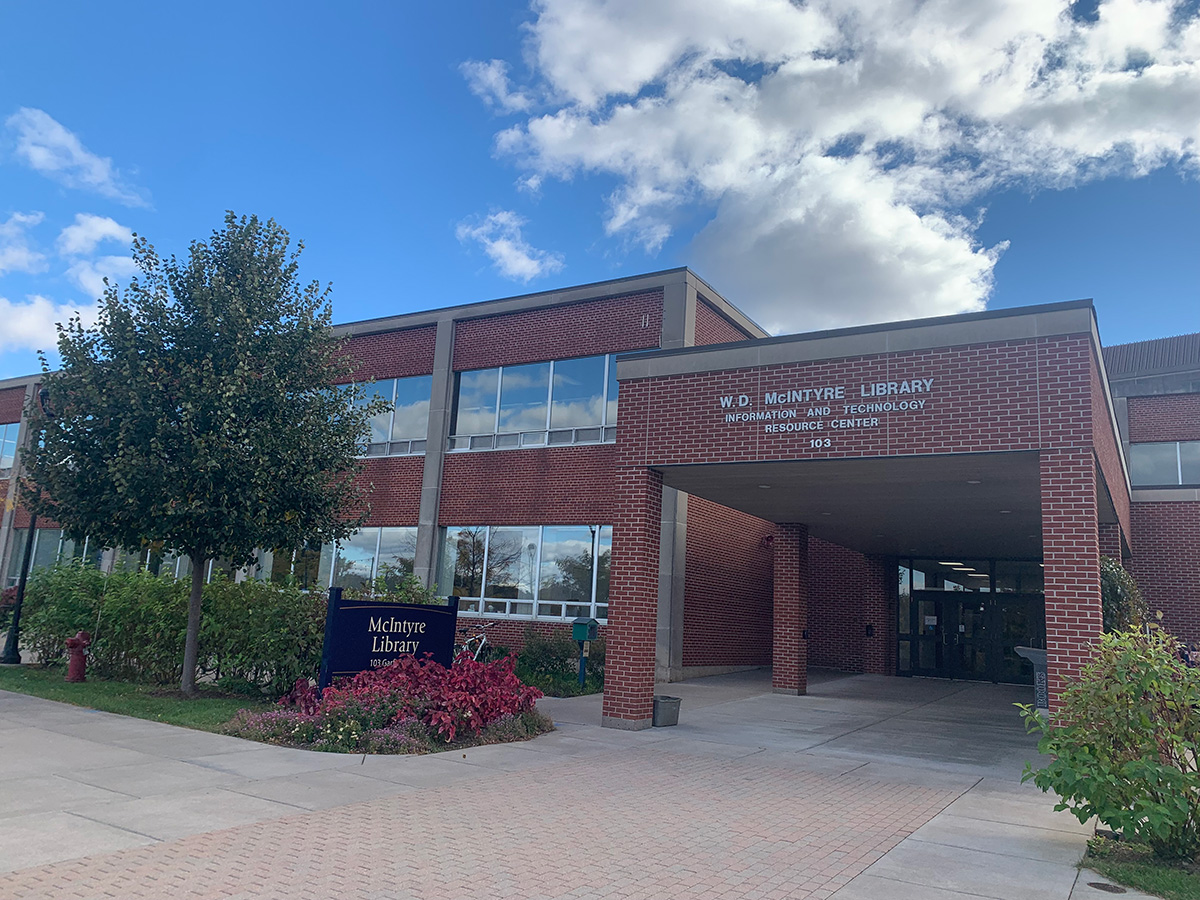Dr. Pamela Guthman spoke at 3:15 p.m. on Wednesday, Nov. 29 at UW-Eau Claire. The talk centered around the growing issue of climate change and the protection of the environment.
Guthman said that public health does a good job of protecting the safety of people in all situations.
“Public health certainly promotes and protects the health of people in the communities where we live, learn, work and play,” Guthman said.
Guthman, who has experience as a Clinical Assistant Professor at the College of Nursing and Health Sciences at UW-Eau Claire, said that through her work she hopes to educate people on how they are impacted by the climate crisis.
“You want your patients to understand what it is that they can do at that moment,” Guthman said. “So that’s part of the reason why I ground myself in public health nursing and with the nurses, because everyone’s health is impacted at some point in time.”
Guthman said there is much to be discovered about the world of climate change.
She said that there is “so much science and data,” as well as that we still “don’t have all the information.”
Guthman said there are a lot of alarming statistics regarding human contribution to the climate crisis.
“We’re dumping about 120 million tons of man-made global warming into our atmosphere every day,” Guthman said. “My heart shakes when we look at how much is being released.”
According to Guthman, the changes in temperature will also influence crops.
“When our temperatures get too warm, our corn supplies are negatively impacted,” Guthman said. “It decreases zinc, iron, copper, magnesium and calcium in our staple crops because of the carbon dioxide side levels and the impact upon the growth of crops.”
The audience of the talk mainly consisted of public health faculty and students who wanted to know more about the topic of climate change.
Sam Roherty, a public health student, said he understands the importance of climate change and hearing about it from an expert.
“I think climate change is really important,” Roherty said. “Having an opportunity to hear about it and learn about it from someone who’s been very involved in it is something that’s important.”
Roherty also said he thinks that, depending on age group, there is a lack of education on the issue.
“I think a lot of people, especially our older generations, typically will find the argument that climate change isn’t real,” Roherty said. “It’s just because they haven’t had access to education.”
Alison Selje, an environmental public health student, said they are very passionate about the climate crisis and awareness of the environment.
“I’m very passionate about climate justice and environmental policy,” Selje said.
According to Selje, there is no denying the change in climate anymore.
“It’s not even an opinion anymore,” Selje said. “It’s our current state of the world. It’s fact.”
Selje, who is passionate about the entire issue, said they think this issue is bigger than people realize.
“It really is a deeply interconnected issue. It will affect everyone and it plays into preexisting discrimination and biases in our society,” Selje said. “We need to approach the solution with multi-solving attacks.”
In closing, Guthman said that taking part in solving the climate crisis doesn’t need to be extreme actions.
“We try to do what we can,” Guthman said. “We’re going to get them there. We’re seeing more and more changes that are occurring.”
Braun can be reached at [email protected].








